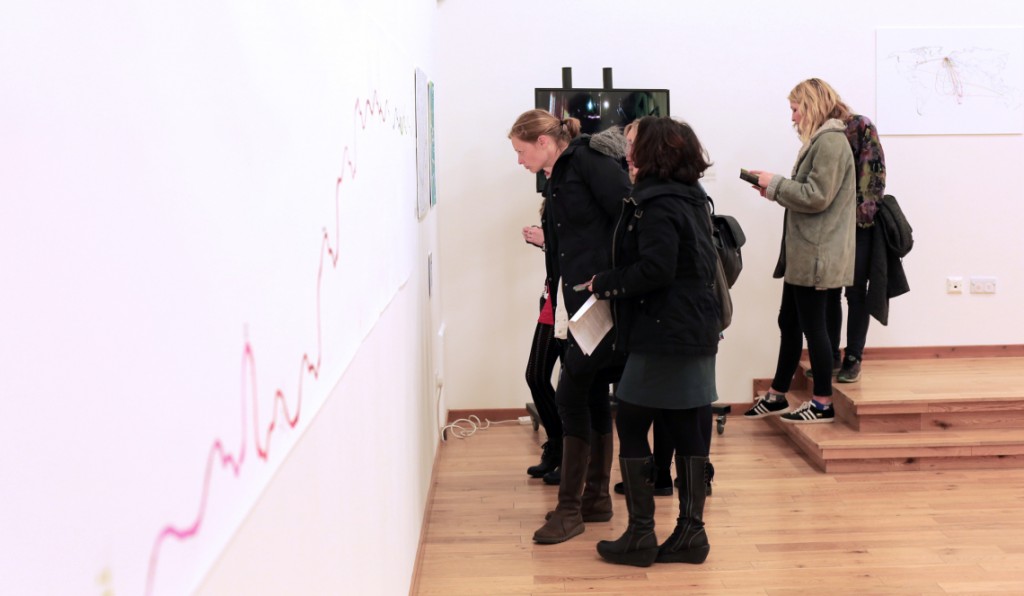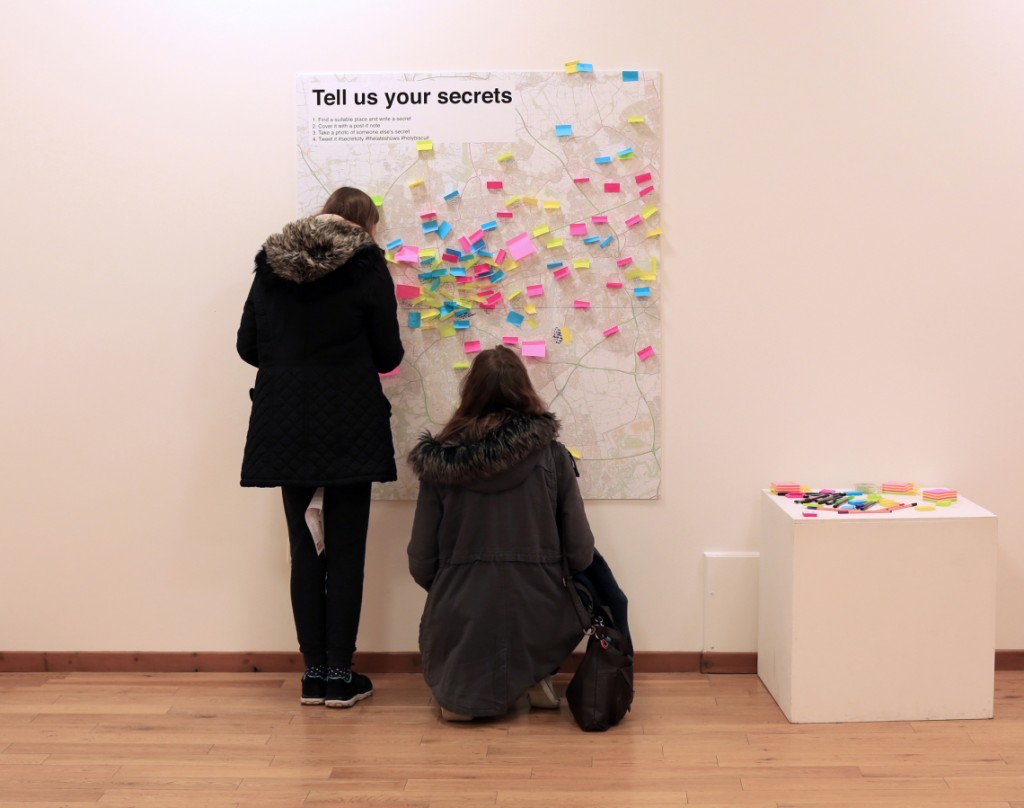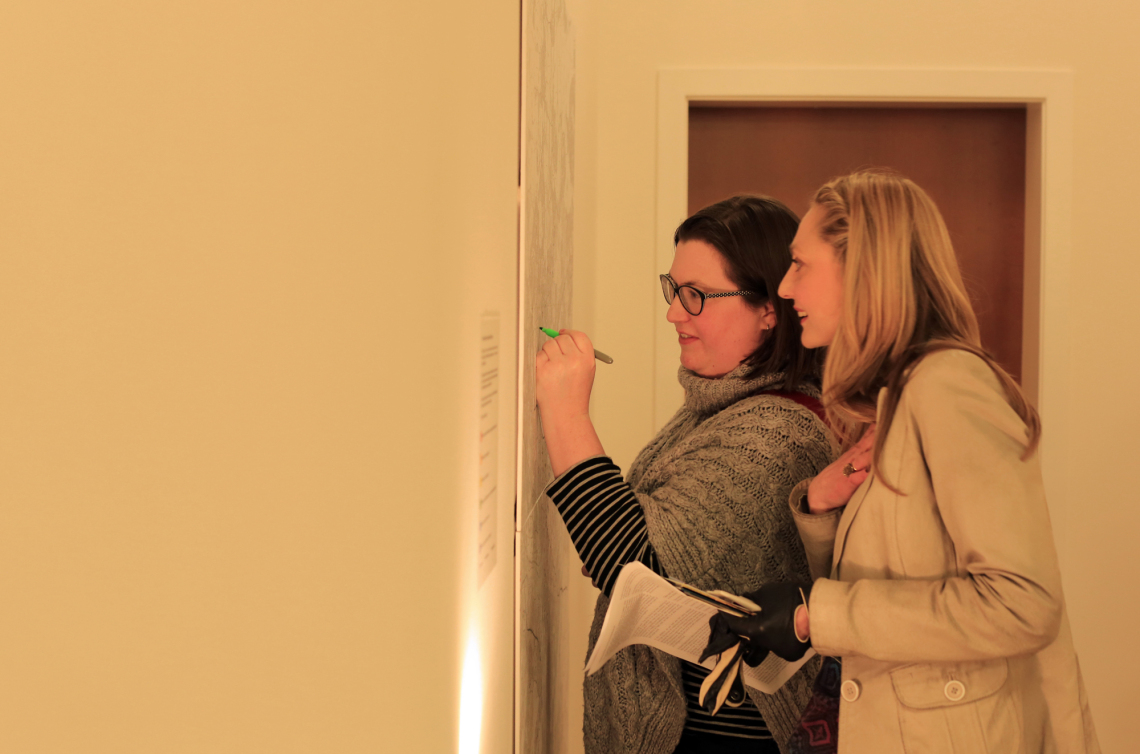In en_counter, we were invited to explore the hidden and unseen; the lost and the found; the familiar and the obscure; the personal and the communal. In these intricate maps, photographs and installations, we were confronted with comments and critiques of how we view our city and our community. We were invited to enter into a dialogue with the participants of en_counter and to ask how the city might be viewed by people in our communities who often don’t have a say in how the city is portrayed and how it is talked about as well as adding our own voices and experiences to create new maps during the exhibition. Whether from the perspective of homeless people, students, young people or skateboarders, what might it mean to truly give people a voice in mapping out how we think about the place we are a part of and how can we build a future together?
Over the past year, Holy Biscuit has been exploring its values as an organisation in an urban environment. We’ve considered what it might mean to be a community which is committed to hospitality and open to all. We’ve explored the tensions of fragility, incompleteness and contradiction and the possibility of hope, truth and faith in an often fractured and unjust world.
In this exhibition we saw truth and faith being explored through the process of mapping our physical and emotional geographies. In the work we went on a journey with the participants to explore their personal stories, experiences and circumstances. We are also reminded of our own internal maps and our sense of self, and conscious of that self in relation to others and perhaps, to God.

In these maps there is also a sense that we are all on a journey; we are all seeking out some kind of purpose and looking for direction and guidance about how we might (or might not) live our lives. In recent years, we have seen a resurgence of pilgrimage in society as people seek to journey to places which have gained emotional or spiritual importance either for them personally or for their communities. Pilgrimage is about remembering what has come before and seeking to be transformed by that remembrance in the present and for the future.
What might it mean to be on pilgrimage in your own city? How might we retrace the steps of others and seek significance in their stories and journeys? What do we miss when we are going about our daily life? How do we mark sights and moments of loss and and celebration? And how might we do these things together with others – discovering (or rediscovering) who we are and who we’d like to be?
This exhibition also begs the questions of what we might put our faith in. Should we place all of our faith and trust in the city branders and town planners and their version of Newcastle? Should we trust Google to be the source of all our knowledge? Or should we seek to put our faith in something else, something more substantial? Moreover, should we seek out alternatives, interpretations and stories, perhaps ones which have been sidelined, ignored or discarded by society? In Liberation Theology, a movement which originated in Latin America in the 1950s, there was a move to read and interpret the Bible and Jesus’ teachings from the perspective and lived experience of the poor and marginalised and to critique the structures of power in society from below rather from above. It was a move, mainly by priests, to build communities where every person might be able to live with dignity, to be agents of their own destiny and as Jesus said “to have life in all its fullness”.

This exhibition gave us the opportunity to encounter our city in a new way; to perceive it through the eyes of others, who may not usually be given the platform to influence how we view our environment or experience our communal spaces. It has stimulated questions and reflections on our experiences of the city and of the accepted public narratives around our perceptions of space and meaning and power.
#en_counter was an exhibition curated by Sebastian Messer, Mike Jeffries and Jon Swords from Northumbria University and supported by The Holy Biscuit programme team. It was in association with Juice Festival. You can find out more about the project here.





